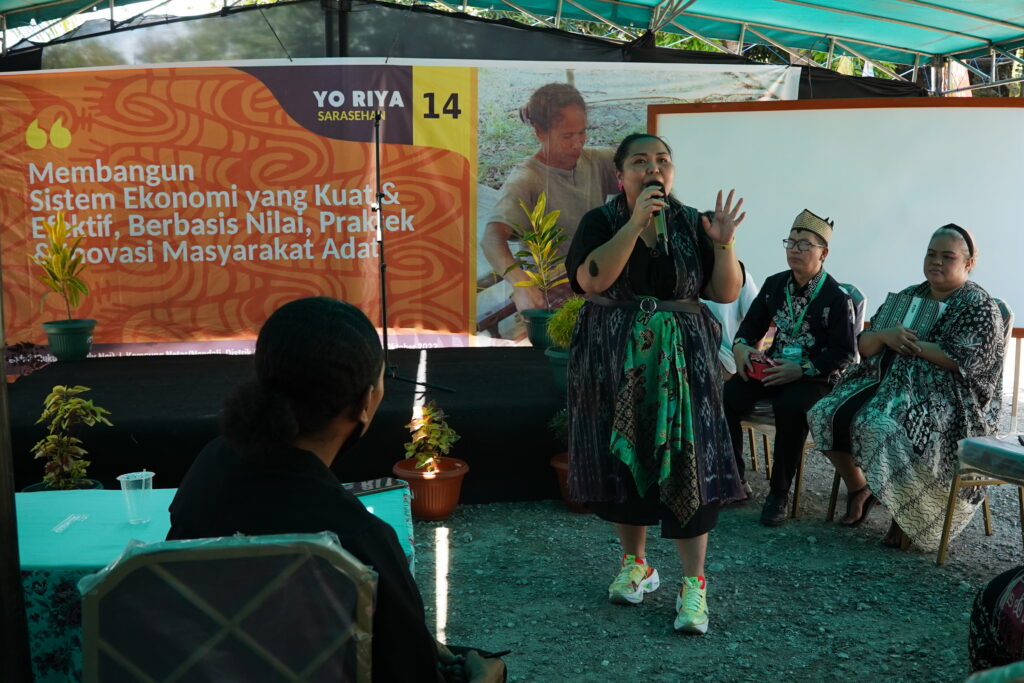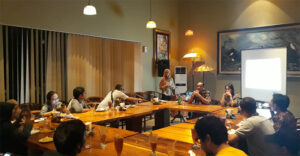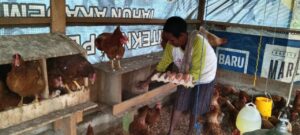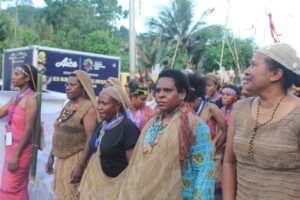
Indigenous people is expected to have capacity to recognize and maintain their rights for natural resources. Hence, they have knowledge on the value which is worth to struggle not only for the current generation but also the next generation of the indigenous people.
This is the conclusion from Mubariq Ahmad, the Director of Conservation Strategy Fund (CSF) Indonesia, in response to 7 resource persons on the workshop of the Indigenous Peoples of the Archipelago entitled “Building Robust and Effective Economic System Based on Indigenous Peoples’ Values, Practices, and Innovation” in Nendali Village, Sentani Timur District, Jayapura Regency, on Tuesday, 26 October 2022.
Furthermore, Mubariq said that the indigenous peoples should build strong mindset believing that business institution is business, instead of social enterprise. The indigenous people should be consistent in business development while paying attention to the commodities volume and quality. “Indigenous people should be able to build a collaboration with other parties both institutionally or personally,” said Mubariq.
The event is part of the Congress of the Indigenous Peoples of the Archipelago (KMAN) VI at Tanah Tabi, Papua. This year theme is “In Unity to Recover Indigenous People’s Sovereignty to Secure Identity of Indonesian Nation who is Diverse and Resilient to Cope with Crisis”. It was estimated more than 2,000 indigenous peoples attend the congress which was held on 24-30 October 2022.
“During Covid-19 pandemic and climate crisis, the resilience actually lies on the indigenous people’s hands. They have local wisdom and their own food resilience within their local wisdom,” said Rukka Sombolinggi, the Secretary General of the Alliance of the Indigenous People of the Archipelago, opening the KMAN VI.
Role of Kobumi
In the workshop, Kobumi Director, Lanny Losung, explained that currently there is a social enterprise, Kobumi, established by EcoNusa Foundation. It aims to build a sustainable business to the indigenous people.
Kobumi’s vision is to promote local commodity with global competitiveness to raise indigenous people’s welfare to secure natural ecosystem through equitable trading system with mutual benefit. Kobumi will serve as the connecting hub for indigenous people to promote and sell the local commodities produced by the indigenous peoples to larger markets both nationally and internationally.
“To date, Kobumi has collaborated with 8 cooperatives to boost up the commodity and expand market. It cannot be hardly performed partially, and thus it requires collaboration,” she said.
Lanny gave example, for instance, the market demand for 100 tons of nutmeg commodity. Meanwhile, a cooperative only has 1 to 5 tons of production capacity. Of course, it is not enough. Thus, it requires collaboration with other cooperative, for example with 10-20 cooperatives to meet the market needs.
Not only search for market, Kobumi will also provide assistance to the indigenous people to identify the export commodity standard. Kobumi readies to help incubation business service by giving financial support to indigenous people.
Besides, as to Lanny, Kobumi and EcoNusa currently create Youth for Papua program. It is intended that youth could run the cooperative in sustainable manner starting from production to marketing, from upstream to downstream.
In cooperation with cooperative, Kobumi tries to improve the volume and quality of commodities such as nutmeg, clove, vanilla, betel nut, and sago. There are also nut, Arabica coffee, Robusta coffee, seagrass, wild boar-based sausage, and fish floss production, including ecotourism in some customary areas in West Papua and Maluku.
“If there is a group of community prepared for the commodities aforementioned above, please contact us. We will provide direct assistance and promote them to foreign market. Kobumi will also provide financing assistance for the cooperative. Now, Kobumi focuses only on three commodities, namely nutmeg, copra, and banana shrimp, which will be exported in the near future,” she added.
Lanny believed that the indigenous community could manage their own natural potential. The existing natural resources will keep existing under their own management. If the indigenous people promotes together the commodity development, the economy will be strong and the indigenous people will be prosperous.
Editor: Leo Wahyudi S







